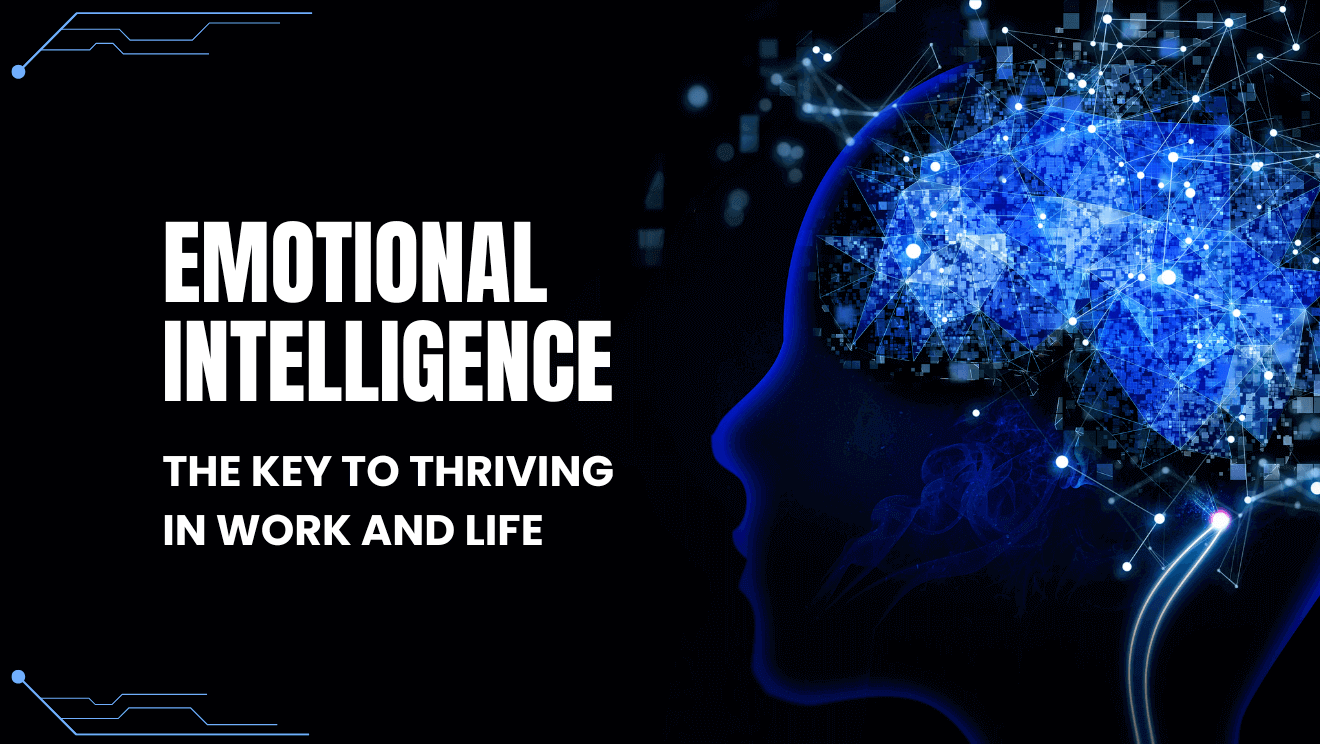Mastering Emotional Intelligence: The Key to Thriving in Work and Life
In our fast society full of endless connections, technical abilities alone no longer lead to success. A person needs Emotional Intelligence (EI) and a mastery of emotions to excel at work. The real difference between good and great professionals lies in how they grasp, direct and use emotions - both theirs and those of others.
EI proves vital for work output and building meaningful relationships. It helps experts deal with stress and also helps them reach their goals. This article will explain what EI means, its value, and the steps to take to develop it.
What Is Emotional Intelligence?
Understanding the Basics
Emotional Intelligence refers to the ability to:
-
Recognise and understand your own emotions.
-
Manage and regulate emotions effectively.
-
Empathise with others and understand their emotional states.
-
Build strong interpersonal relationships through effective communication.
The concept became well known through psychologist Daniel Goleman, who defined really important key parts of EI:
-
Self-Awareness
-
Self-Regulation
-
Motivation
-
Empathy
-
Social Skills
Why Is Emotional Intelligence Important?
1. Improves Workplace Productivity
Teams with good EI talk better next to solve problems quickly and work well together. Managers who understand emotions inspire their teams, which leads to more output and higher spirits.
2. Enhances Leadership Skills

A sharp emotional sense forms the base for great leadership. Leaders who read emotions well connect to their teams, grasp their needs, and lead them to shared targets.
3. Strengthens Relationships
Both at work and home, EI helps people deal with social matters, build trust and create real connections.
4. Reduces Stress and Burnout
The ability to read emotions lets people handle tough spots better. This cuts down stress and helps avoid total exhaustion.
The Five Components of Emotional Intelligence

1. Self-Awareness
Self-awareness acts as the basis of Emotional Intelligence. A person needs to spot their emotions and grasp how these affect their thoughts and actions.
Practical Tips to Improve Self-Awareness:
-
Try mindfulness to connect with your emotions
-
Write in a journal about emotional triggers
-
Ask trusted colleagues for feedback
2. Self-Regulation
Self-regulation means the power to control impulses and handle stress next to quick changes.
Practical Tips to Improve Self-Regulation:
-
Use deep breathing when stressed
-
Create good habits to deal with tough times
-
Make clear limits to prevent emotional overload
3. Motivation

Motivation helps you focus on goals and keep a positive mind during hard times.
Practical Tips to Boost Motivation:
-
Pick realistic goals that match your values
-
Take pride in small achievements
-
Connect with really supportive people
4. Empathy
Empathy lets you understand other people's feelings. It helps build trust and resolves conflicts.
Practical Tips to Develop Empathy:
-
Listen actively without interrupting or offering solutions prematurely.
-
Try to see situations from others’ perspectives.
-
Ask thoughtful questions to understand others’ emotions.
5. Social Skills
The right social skills make communication work better. These help with networking and leadership.
Practical Tips to Enhance Social Skills:
-
Practice active listening in conversations.
-
Develop assertive communication techniques.
-
Engage in team-building activities to strengthen relationships.

How Emotional Intelligence Impacts Your Career
Better Decision-Making
High EI helps professionals control emotions and make smart decisions under pressure. A project manager with good EI just stays calm in crises and discovers solutions fast.
Enhanced Team Dynamics
Teams with high EI become close-knit and produce results. They talk well, fix problems fast, and work together without issues.
Improved Customer Interactions
Empathy and active listening prove very valuable for client work. These traits help address concerns in the right way.
Stronger Leadership Presence
They push teams forward also, fix conflicts with skill, and lead their companies to excel.
How to Develop Emotional Intelligence
Growing your Emotional Intelligence takes time but offers great rewards. These are practical steps to develop each EI part:
-
Practice Mindfulness: Regular quiet moments help you know yourself and control your feelings better.
-
Reflect and Journal: Note what triggers your emotions, your reactions, and the lessons learned.
-
Seek Constructive Feedback: Connect with coworkers or mentors to learn about your emotional skills and areas to work on.
-
Join Training Programs: Attend workshops or courses that focus on Emotional Intelligence skills.
-
Read and Learn: Books like Emotional Intelligence 2.0 by Travis Bradberry can provide deeper insights and strategies.
Why Emotional Intelligence Is Crucial for the Future of Work

As offices become more diverse and interconnected, EI has become an important skill. Here's why:
-
Automation and AI are reshaping jobs: Technical abilities stay vital, but emotional intelligence lets professionals excel where human contact matters most.
-
Hybrid work environments require empathy: Remote teams have become the standard, so the ability to understand and connect with others means a lot.
-
Leaders need to adapt: Good leadership in tough times requires mental resilience and flexibility.
Learn Emotional Intelligence with Nexacu
At Nexacu, we believe Emotional Intelligence serves as a key skill for personal and professional growth. Our EI Training courses will help you:
-
Enhance your self-awareness and empathy.
-
Improve communication and conflict resolution skills.
-
Build stronger relationships at work and in life.
Our expert trainers offer practical exercises along with role-playing scenarios and real strategies to develop your EI.
Take the First Step Toward Thriving Today
A mindset defines Emotional Intelligence - not just a skill. When you develop EI, you'll unlock potential, make better relationships, and succeed in all parts of your life.
Ready to get started? Explore Nexacu’s Emotional Intelligence Training and take the first step toward success.
Explore Emotional Intelligence Courses and Enrol Today


























